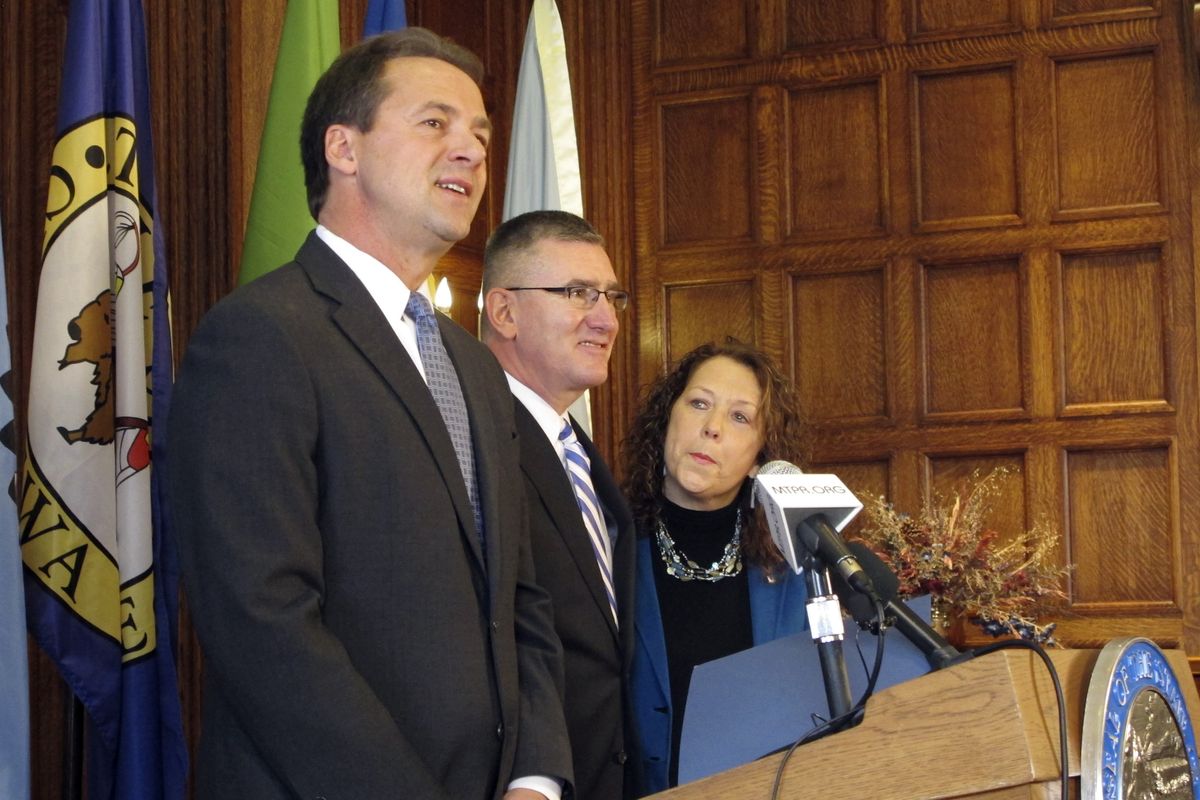U.S. Senate seat no lock for Montana incumbent Walsh

HELENA – Max Baucus’ decision not to seek re-election to the Senate after 35 years opened the door for Republicans to pick up one of the six Democratic seats they need to recapture control of the Senate. But his early resignation after being named U.S. ambassador to China may have bolstered Democratic prospects of retaining the seat they’ve held for a century, thanks to the value of incumbency.
Baucus’ China appointment by President Barack Obama allowed Montana Gov. Steve Bullock, a Democrat, to name his lieutenant governor, John Walsh, to fill the suddenly vacant Senate seat until January. That makes the little-known state adjutant general the favorite to win the Democratic primary in June and mount a general election challenge of likely GOP nominee Steve Daines, a freshman congressman who won his statewide congressional seat by a wide margin in 2012.
In the June 3 primary, Walsh faces former Lt. Gov. John Bohlinger, who switched parties to run for the Senate, and rancher Dirk Adams, who is making his first run for office. Both have taken issue with the advantage Bullock gave Walsh by appointing him to Baucus’ seat.
Daines has a big fundraising and name recognition edge in the GOP primary against state Rep. Champ Edmunds and political newcomer Susan Cundiff, an administrative assistant at the University of Montana.
Republicans have a built-in advantage in Montana, where voters are skittish about the still-recovering economy and Democrats are running into headwinds from an unpopular president and his even more unpopular health care law. Obama lost Montana in 2012 by nearly 14 percentage points, but voters still re-elected Democratic Sen. Jon Tester and put Bullock in office in that same election.
And Walsh, now a member of the Senate, can no longer run as an outsider. By the fall, he will have a record of nearly a year of votes to defend.
Before his appointment, Walsh had been an unknown commodity in Montana politics. He spent 33 years in the Montana National Guard before Bullock picked him as a running mate. His name recognition was relatively low and his political track record nil.
Now, Walsh is on a more equal footing with Daines as they wage a campaign from meet-and-greets in Big Sky Country cafes to floor speeches under the Capitol dome.
For his part, Daines wants to help Republicans retake the Senate majority.
The money is rolling in for both candidates. Walsh reported a nearly 62 percent increase in contributions for the first three months of the year compared to the quarter before his appointment. But the $946,000 he raised fell short of the $1.2 million Daines took in during the same period – and the Republican has $2.2 million to spend, while Walsh has about $700,000 in the bank.